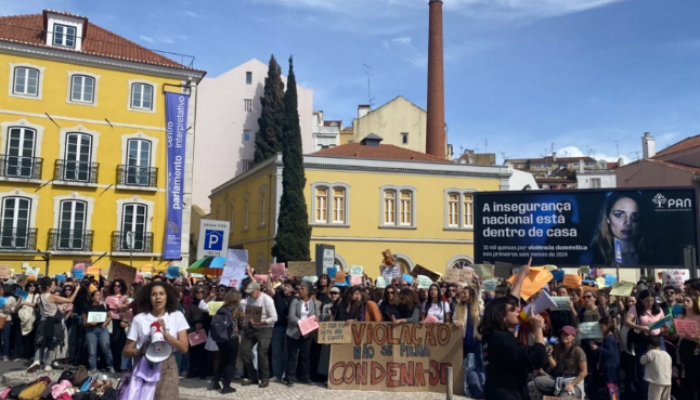A disturbing social media video showing the alleged rape of a 16-year-old girl in Lisbon has ignited widespread backlash across Portugal. The footage, which depicts a horrific crime that occurred in the Loures district in February, was shared online and viewed over 32,000 times, yet no one reportedly alerted the authorities. The incident, however, was brought to the attention of the police after the victim sought medical treatment at a hospital.
Three suspects, aged between 17 and 19, were arrested in connection with the crime but were released by a court with conditions, including periodic check-ins with the authorities and a ban on contacting the victim.
This unsettling case has prompted calls for greater action against harmful content on digital platforms, with some politicians and public figures urging the European Commission to intervene. Socialist Member of European Parliament (MEP) Ana Catarina Mendes criticized the ease with which such content is disseminated online, calling for stronger measures to protect individuals, particularly women, from online abuse. In her letter to the European Commission, Mendes emphasized the need for rapid removal of harmful content, especially material that violates consent, such as the video of the assault.
Demonstrations and Public Outrage
The public’s anger over the case was visible in demonstrations that took place in Lisbon, where hundreds gathered in front of the Portuguese parliament. Protesters carried signs with messages like “rape is not filmed, it is condemned,” demanding stricter laws to prevent the sharing of explicit and harmful material online. Organizers and political figures at the protest emphasized the importance of holding social media platforms accountable for allowing the circulation of such content.
“Male chauvinism exists, and the problem is that male chauvinists are being turned into internet prophets,” said Mariana Mortágua, coordinator of the Left Bloc party, highlighting the role of social media in perpetuating harmful gender narratives. Other political figures, including Isabel Mendes Lopes from Livre, called attention to how digital platforms have amplified structural gender inequality.
Inés Sousa Real, from the PAN party, proposed bolstering reporting mechanisms for online crimes and incorporating self-defense education into schools to better protect potential victims.
The Fight Against Image-Based Sexual Violence
This case also highlights the growing problem of image-based sexual violence, where intimate images and videos of individuals are shared without consent. Inês Marinho, a victim of such violence herself, founded the “Don’t Share” movement to support victims who have faced similar exploitation. Marinho, who later turned the movement into an association, believes that online sexual violence has become normalized, with perpetrators feeling emboldened behind the anonymity of the internet.
Portugal has been grappling with the rise of these crimes, with cases such as a Telegram channel where over 70,000 men shared intimate images of women without consent, underscoring the urgent need for stronger safeguards in the digital age.
This tragic case and the public outcry it has sparked serve as a powerful reminder of the critical need for comprehensive legislation that addresses the online distribution of harmful content and protects victims of sexual violence in both the physical and digital realms. The conversation continues, as advocates, lawmakers, and the public demand greater accountability from tech platforms and stronger legal frameworks to prevent such incidents in the future.

